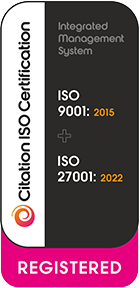The journey to recovery from alcohol addiction is often marked by several key phases – each requiring patience, perseverance, and proper care.
However, if you are about to begin this journey, you may be left wondering how long it takes to withdraw from alcohol, and what the alcohol recovery timeline looks like.
That’s what we’ll be exploring in this blog post today. Read on for our guide to the alcoholism recovery process.
How Long Does it Take to Recover From Alcohol Addiction?
One size does not fit all when it comes to recovery, whether it be from drugs or alcohol. Recovery from alcohol addiction varies from person to person.
At Rehubs, we understand that everybody is unique; which is why we tailor our treatment accordingly. Factors such as the severity of alcohol abuse, individual health conditions, and the presence of any co-occurring disorders can influence the duration of recovery.
Generally, the recovery journey can be categorised into several key phases. The first step towards recovery is often the most challenging – acknowledging the issue and making the decision to stop drinking and seek help.
During this stage, you may feel a range of emotions, including fear, shame, and determination. Remember that asking for support is a sign of strength, not weakness. Making the decision to overcome your addiction can be difficult, but is the best step you can take for your health and well-being. </p>
It’s also important to note that recovery is an ongoing process, and some people never completely recover. However, each day of sobriety is something to be proud of.
Detoxification and Withdrawal
Once you have made the decision to quit alcohol, the next step is an alcohol detox. This means you will cleanse your body of alcohol. If you have a dependence on alcohol and you stop drinking, you may experience alcohol withdrawal symptoms.
Withdrawal symptoms can occur as quickly as a few hours after your last drink. They can range from mild to severe. Some symptoms could include alcohol cravings, anxiety, insomnia, nausea, and sweating. Symptoms will typically increase in intensity until around 36 hours into detox – and they should then gradually ease off.
There are several options when it comes to detox – however, you should avoid detoxing cold turkey. Instead, why not consider opting for a medical detox, an at-home detox or a medically supervised inpatient detox?
As your body detoxifies, the physical recovery process begins. This involves addressing the damage caused by alcohol abuse to internal organs. Proper nutrition, hydration, and medical care are crucial during this phase. Your body will start to heal, and you may begin to experience improvements in energy levels, sleep, and overall health.
Acute Withdrawal Symptoms
This stage is characterised by intense symptoms that peak during the first few days of detox. This is when the body, accustomed to the presence of alcohol, reacts to its absence.
Symptoms may include hallucinations, seizures, and severe anxiety. The most severe form of alcohol withdrawal is delirium tremens (DTs), which involves confusion, increased heart rate and blood pressure, hallucinations and seizures.
Medical professionals in a hospital setting can help mitigate risks associated with DTs and severe alcohol withdrawal.
Addiction Treatment and Therapy
Heavy drinking and alcohol addiction not only affect your body but can also take a toll on your mental health and cognitive function/ brain function.
Recovery involves addressing these aspects through therapy and counselling. There are many benefits to addiction therapy, and there is a wide range of treatment options for alcohol addiction.
The best approach is the combination of psycho-social therapy (also known as group therapy) and one-to-one therapy. 95% of residential rehab clinics use this approach, including our addiction experts at Rehubs.
Our addiction therapists at Rehubs can guide you to reclaim your true self. We will help you to nurture your physical and emotional health and help you to improve your relationships with others.
Therapy sessions provide a supportive space where you can explore the root causes of your addiction and develop helpful coping mechanisms. Ultimately, addiction therapy can help you to unlock the strength within you to navigate life’s challenges.
Many people worry about relapsing, which is why we will give you the tools you need to manage and prevent relapse. This can involve learning to identify triggers, developing coping strategies, and having a relapse prevention plan in place.
Continuous self-reflection and a commitment to a sober lifestyle are key to reducing the risk of relapse.
Post-Acute Withdrawal Symptoms
Some people continue to experience the side effects of alcohol withdrawal, even after some time has passed. This is known as post-acute withdrawal syndrome (PAWS).
These extended symptoms can include mood swings, trouble sleeping, anxiety, stress, fatigue and more. Some people also experience ongoing alcohol cravings, as well as obsessive-compulsive behaviours. PAWS can also cause difficulty maintaining social relationships.
Post-acute withdrawal symptoms can persist for weeks or even months. Your addiction specialist or healthcare professional will help you to understand and address the symptoms of PAWS. Therapeutic support can help you to manage the psychological, social and behavioural symptoms throughout your recovery journey.
Continued Support
Reducing your alcohol consumption and quitting alcohol doesn’t happen overnight. Recovery is an ongoing process that requires commitment and continued care. This involves regular check-ins with healthcare professionals, ongoing therapy, and participation in support groups.
Maintaining a healthy lifestyle can be beneficial to your overall well-being. This can include regular exercise, balanced nutrition, and adequate sleep.
The alcoholism recovery timeline is a journey that involves physical, mental, and emotional healing. At Rehubs, we can provide you with the support you need. Begin your recovery journey with our online rehab programme today. With Rehubs, you can experience the power of evidence-based, structured rehab from the comfort of your own home.
We can help you break free from the grips of addiction, and empower you to begin your new, sober life. You have the keys to sobriety within you; we are just here to provide you with the tools, support and resources for lasting recovery. You’re not alone – we are here for you.
{{ include_custom_fonts({“Poppins”:[“Black”,”Black Italic”,”Bold”,”Bold Italic”,”Extra Bold”,”Extra Bold Italic”,”Extra Light”,”Extra Light Italic”,”Light”,”Light Italic”,”Medium”,”Medium Italic”,”Regular”,”Regular Italic”,”Semi Bold”,”Semi Bold Italic”,”Thin Italic”]}) }}







